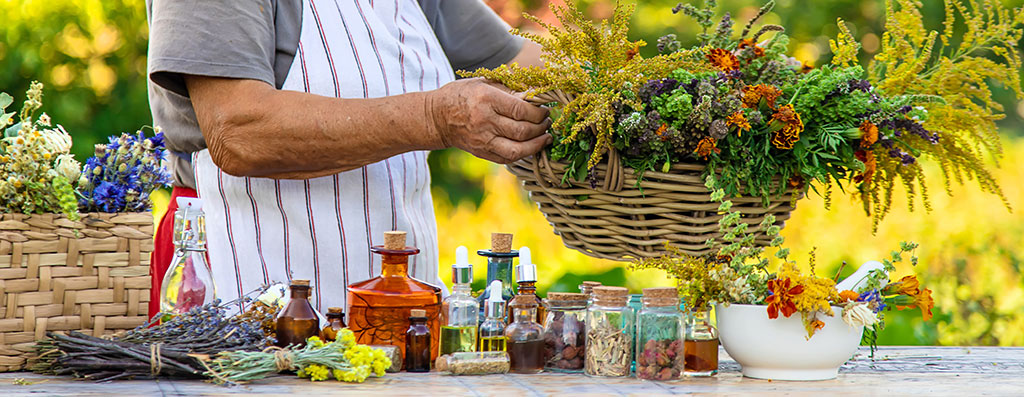Understanding The Difference Between Tinctures And Infusions
Posted on November 30 2022

Herbal tinctures, glycerites, and infusions are excellent ways to transform an herb's therapeutic characteristics into a form that may be consumed.
There are probably already a variety of plants in each of these forms in your herbal medicine cabinet. Depending on how you utilize each plant, you'll acquire some of its greatest features.
What distinguishes a tincture from an infusion, then?
Well, boiling the herbs in water makes an infusion. On the other hand, plants are soaked in alcohol to create tinctures.
But what other differences are there? This article explores the differences between tinctures vs infusions.
Infusions
There are several approaches to giving therapeutic plants to patients. While some individuals like tinctures, many people choose the ease of infusions in the form of teas.
However, infusions are typically regarded as the least effective treatment option when it comes to effectiveness.
This is because not all of the herb's beneficial components are water soluble, and even if they are, a brief soak in boiling water is insufficient to extract them all.
Infusions are therefore often less effective than other processes, including glycerites or tinctures. Infusions' ingredients are also less bioavailable, which makes it less probable that the body will absorb them.
Because of this, infusions are frequently used to treat minor diseases and problems rather than more serious ones. Although effective and useful, infusions are not typically regarded as a dependable way to administer significant doses of therapeutic plants.
However, there is no harm in consuming herbal teas if you love doing so or if you just feel a little under the weather; just don't expect them to perform wonders.
Tinctures
Alcohol is a great solvent for creating tinctures, provided you don't mind drinking it in the first place. Water helps to extract the active ingredients from any herbs you could employ, and because it is efficient at dissolving both acidic and basic elements, you can be confident that the tincture you create will be as potent as possible.
Because of this, alcohol-based herbal tinctures are stronger and more long-lasting than those produced using other solvents like glycerin or water alone.
Additionally, alcohol has the advantage of being a strong preservative and inhibiting bacterial development. As a result, if you want to prepare a tincture in any quantity that is acceptable for long-term storage, alcohol is the obvious choice.
Even with all these benefits, there are some drawbacks to utilizing alcohol for tinctures.
Even weaker alcohol has a tendency of causing some of the crucial resources you are seeking to remove in the first place to become damaged or denaturized. In addition to negatively affecting polysaccharides, proteins will become "pickled."
It is important to highlight that aromatic components will also suffer harm or degradation. For this reason, certain tinctures that have been matured for many years may have lost their original color and scent.
Making Infusions
In essence, an infusion is a tea. By letting the herbs soak in boiling water for 5–10 minutes, filtering, and then consuming, you can extract the medicinal properties of the plants.
In general, this is a gentle way to provide herbs, especially to young children and infants.
Simply add two to four grams of your preferred herbs, by weight, to a large teapot or Mason jar. Add eight to 16 ounces of boiling water, steep for five to 10 minutes, and then strain. The jar or kettle should ideally be covered.
The resulting mixture should then be strained and sweetened to taste. All of these herbs are safe to use and excellent for colic or upset stomachs,
Making Tinctures
The most common ratio for dried herbs to alcohol is 1:5, which means that you should use five ml of alcohol for every gram of plant.
The only factors to take into account when selecting an alcohol to make a tincture are that it is safe for human consumption, and powerful enough to dissolve the active ingredients in your plants.